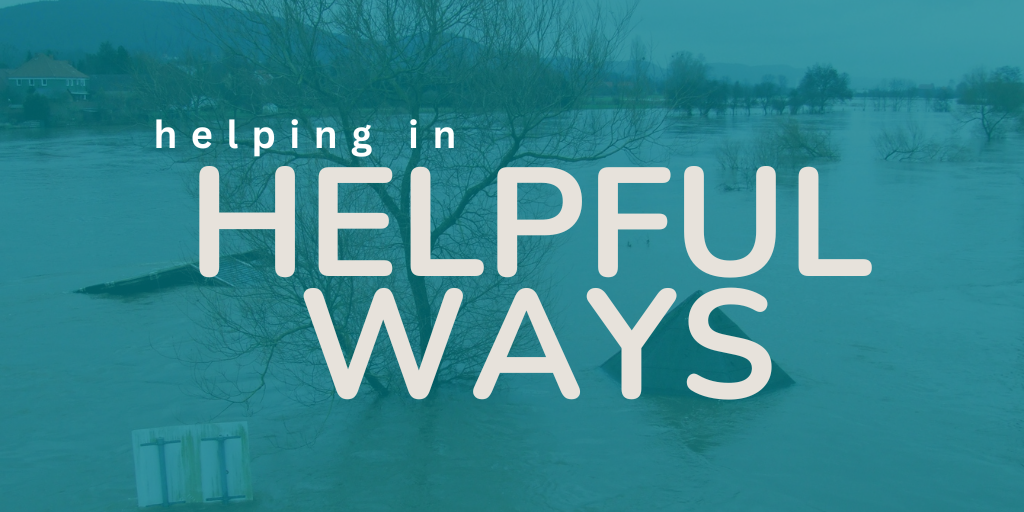
Helping in Helpful Ways
When tragedy strikes, everyone wants to help. This is admirable and well-intended. But what happens when our help is not helpful? What if helping gives us more peace of mind than it gives the victims relief?
In any disaster, it’s hard to think about how we can really help in this situation or any other disaster that arises. I believe that everyone truly wants to help. They have the best intentions to make a difference and improve others’ circumstances. Sometimes we just don’t know where to start!
Hopefully, these three principles will help you help others better:
Do Your Research
To be helpful, you don’t have to reinvent the wheel. So many great organizations and groups of people are already working to do good. When a tragedy happens, first look at who is already helping. Maybe you can donate clothes to people who are already collecting items. Or perhaps you can donate to an organization that is equipped to help people in need. Instead of people doing their own thing in small quantities, you can collaborate with others to make the effort more effective.
How can you research? Start with Google! Go to social media. Ask your local school, church or city. Talk to friends and see what those around you are involved in.
There are tons of great options to help in a disaster, but here are a few to get your research started:
- Convoy of Hope: is a faith-based nonprofit bringing help and hope to communities in need. They have many ways to get involved!
- American Red Cross: you can give by phone, text, online or mail to help people affected by disasters.
- Salvation Army: you can also donate by any of the ways listed above to help with long-term relief efforts.
- North Texas Food Bank: donate online to provide food and water to those affected by disaster.
Help in realistic ways!
Everyone has a different capacity to help and different gifts to use. Help in a way that is realistic and applicable to you! The links above involve financial assistance. This is a great option, but there are other ways that you can help.
What is so important here is that you only commit to what you can handle.
If you choose to volunteer, finish the time you committed to help. If you want to start a food drive, make sure you have the capacity to collect and distribute the supplies. If you pledge money to an organization, give within your means. It does not help anyone if you start something and don’t follow through.
Here are some ways you can donate your time, home and supplies to help:
Offer Help That Is Needed
Finally, you want to make sure that whenever you offer help, you are offering something that is needed. I love this article which talks about how disaster relief creates its own disaster. It lists several examples of help with was well-intended but unnecessary from sending winter coats to Honduras in the Summer to tens of thousands of teddy bears sent to the children of Sandy Hook.
- Check with organizations to see what is actually useful.
- Give to locations that provide lists of items or a registry of sorts.
- Don’t assume that your junk is needed just because they have lost everything.
Put yourself in the shoes of the person affected by disaster. What would you want? What would you need? What would you find overwhelming?
In times of trial, we want to help. We want to give, donate, and send everything we can.
The problem is that we should first check our motivation.
Are you giving to truly help those affected? Or are you giving to feel like you made a difference? Sometimes the best thing to do is to donate money to an organization that can provide supplies that are needed. Or maybe people need things like water or diapers. It doesn’t have to be fancy or Instagram-worthy to make a difference!
What do you think about it? What other ways do you know of to help those in need?

Karlie Duke
Communications Director
Karlie Duke | Director of Communications
Karlie has always had a heart for teenagers. Through her role at Teen Life, she loves to showcase the amazing stories coming out of Support Groups, but she is especially passionate about helping adults and teenagers find connection. Karlie has a BS in Communications with a minor in Family Studies from Abilene Christian University.